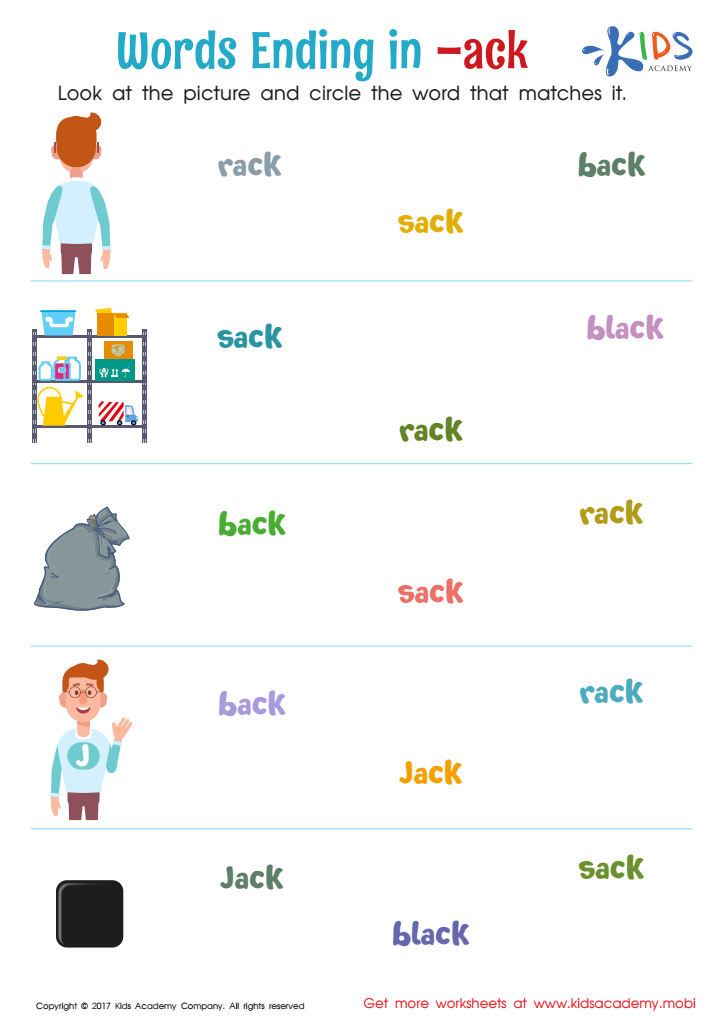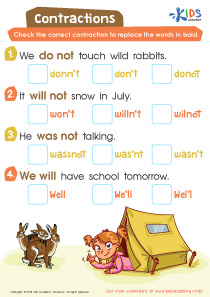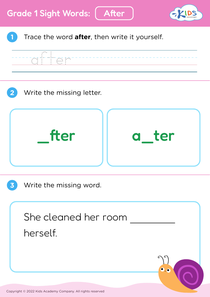Phonological Awareness worksheets With Answers for Grade 1 - Page 2
31 filtered results
-
From - To
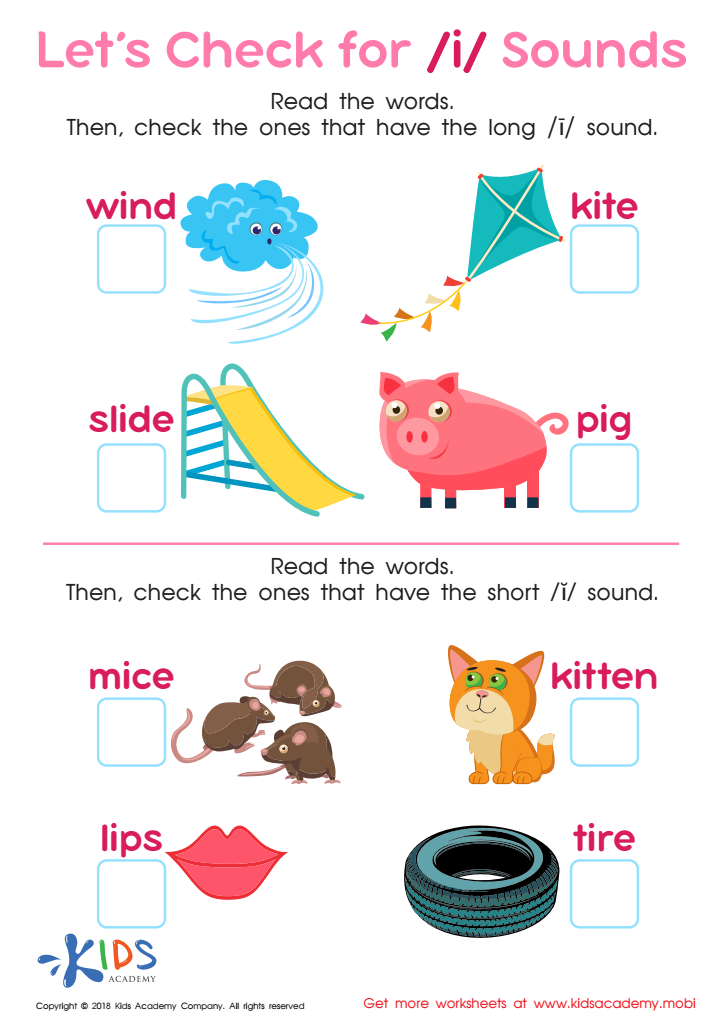

Let's Check for «i» Sounds Worksheet
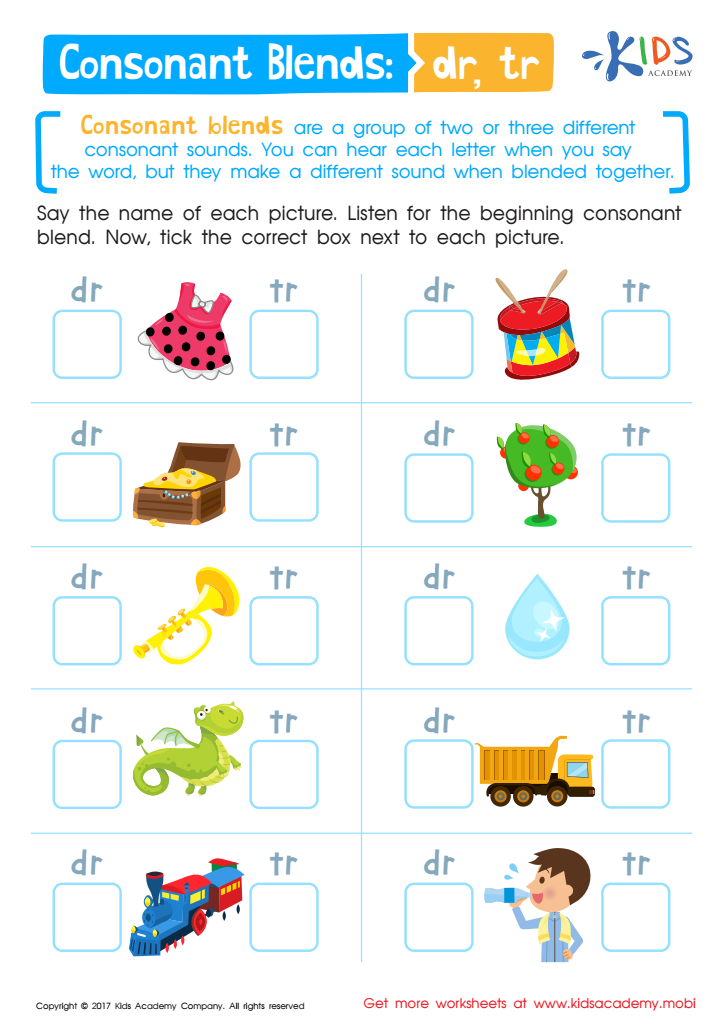

Consonant Blends: "Dr" and "Tr" Printable


Phonics and Word Recognition: Assessment 1 ELA Worksheet
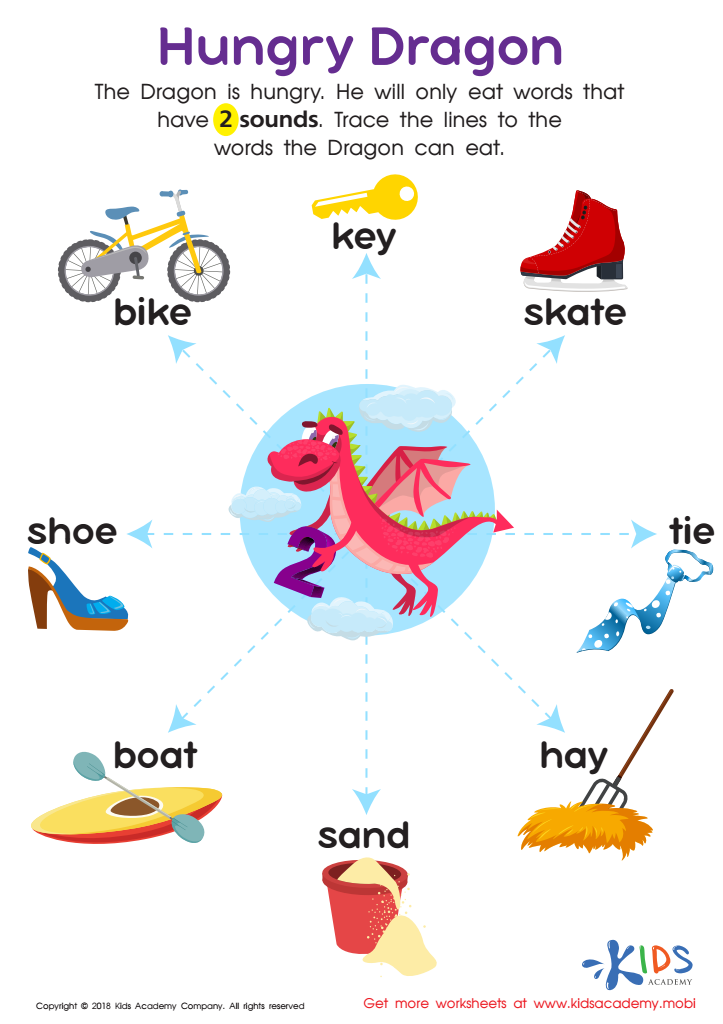

Hungry Dragon Worksheet
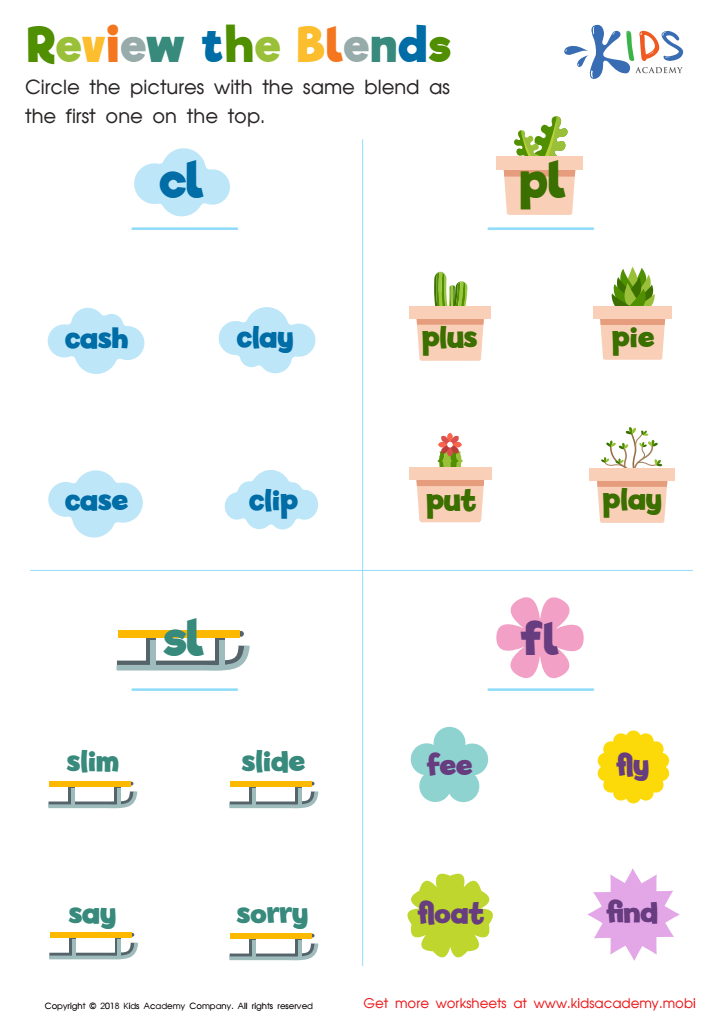

Review the Blends Worksheet
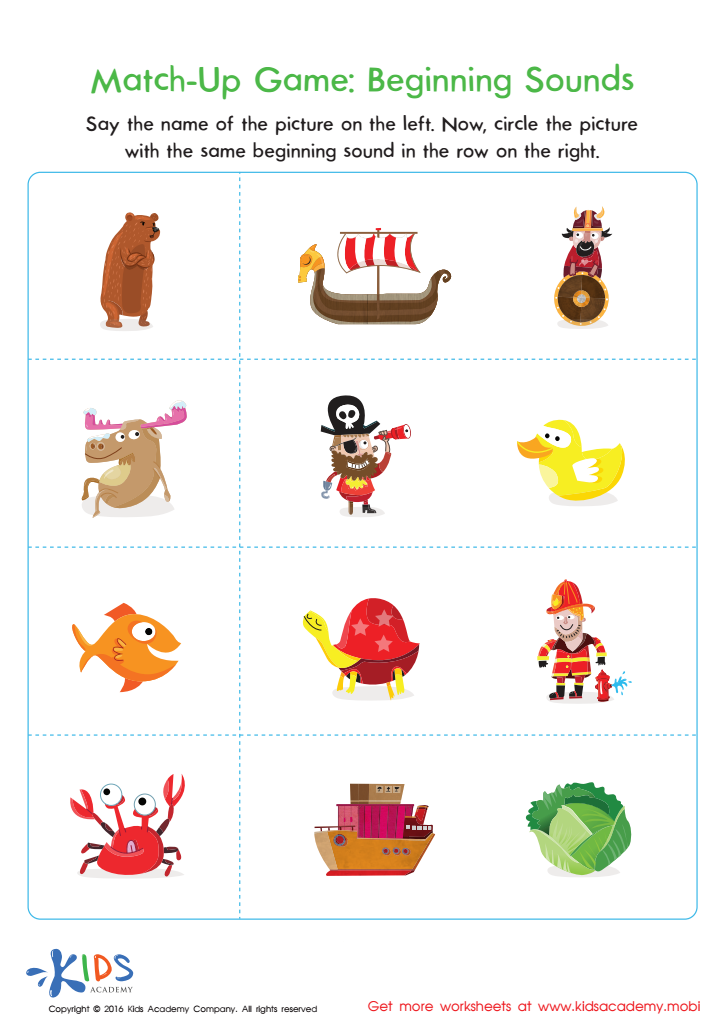

Match–Up Game: Beginning Sounds Worksheet
Phonological awareness is a crucial skill for young learners, especially in Grade 1. It refers to the ability to recognize and work with sounds in spoken language, which is foundational for reading and writing. Parents and teachers should care about phonological awareness because it strongly predicts a child’s reading success.
First, when children can hear and manipulate sounds, they develop the necessary skills to decode words. For example, if a child can identify that the word "cat" has three sounds (/k/, /æ/, /t/), they're more likely to read it accurately when they see it. Additionally, phonological awareness helps with spelling. Children who understand sound patterns can spell words more easily.
Moreover, engaging in phonological activities can be fun! Parents and teachers can use rhymes, songs, and games to make learning enjoyable. This not only encourages participation but also builds a love for reading and language.
Finally, by nurturing phonological awareness, parents and educators set the stage for academic success. When children develop these skills early, they are more confident and enthusiastic learners, paving the way for their lifelong education journey. Thus, fostering phonological awareness is essential for reading and overall literacy development.
 Assign to My Students
Assign to My Students
